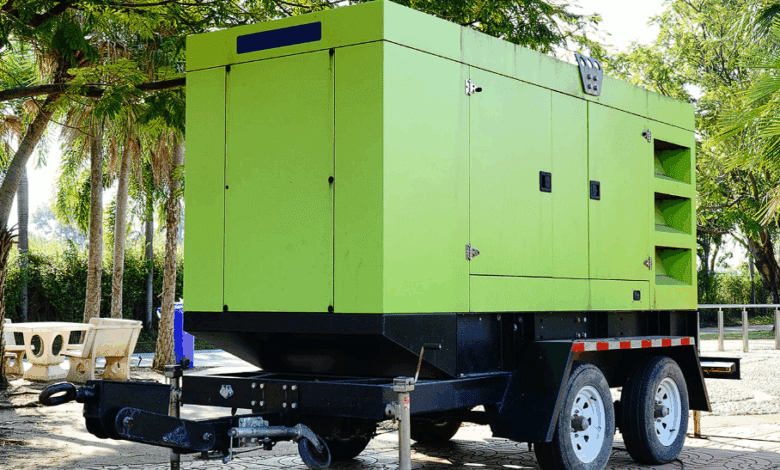Thinking About Running Your Refrigerator/Freezer on a Generator? Here’s What You Need to Know

If you’re considering powering your refrigerator or freezer with a generator but aren’t sure if it’s safe or what size you need, this guide covers everything you need to know.
Running a refrigerator/freezer on a generator is perfectly safe—as long as the generator provides enough wattage to support your appliance’s power requirements. For example, a typical fridge requiring 700–900 running watts and 1500–2000 starting watts can operate efficiently on a 2000-watt generator.
Can a Generator Damage a Refrigerator?
Yes, it can—but only if it’s overloaded. Connecting too many appliances can cause a voltage drop, which may harm sensitive components in your refrigerator, including the compressor. To avoid this, make sure your generator isn’t operating beyond its capacity.
PRO TIP: If you plan to run multiple devices, go for a larger generator—3000 watts or even 5000 watts for better reliability.
How Many Watts Does It Take To Run a Refrigerator?
The wattage needs vary depending on the size and efficiency of the refrigerator. Older models typically consume more power—some needing 1000–1200 running watts and up to 3000 starting watts. In contrast, newer energy-efficient models (especially those with inverter technology and Energy Star ratings) consume far less—usually 100–600 running watts and 700–2000 starting watts.
| Refrigerator Size | Starting Watts | Running Watts |
| Mini Fridge | 200 – 400 | 50 – 100 |
| Small | 500 – 800 | 130 – 200 |
| Big/Jumbo | 1000 – 2500 | 3000 – 5000 |
| RV Refrigerators | 40 – 60 | 80 – 180 |
Use this formula to calculate your power needs:
Power (Watts) = Volts x Amps
You’ll also find a yellow EnergyGuide sticker on the back of most refrigerators (white in Canada and some other countries) which shows average power consumption.
What Size Generator Do I Need for Powering a Refrigerator?
A 2000-watt inverter generator is usually enough for a standard modern refrigerator. However, if you own a jumbo fridge or plan to run other appliances at the same time, opt for a 3000–5000-watt generator.
For instance, I personally use the DuroMax XP5500EH to run an 800-watt jumbo refrigerator along with additional tools like a sump pump, vacuum, and grinder.
Here’s a quick reference table:
| Refrigerator Size | Recommended Generator Size |
| Mini | 1000 watts |
| Small | 2000 watts |
| Big | 3000 watts |
| Jumbo | 4000 – 5000 watts |
How Long Can a Refrigerator Run on a Generator?
A typical portable generator can run a refrigerator for 4–6 hours continuously, depending on the fuel tank size and load. However, I follow the 1:4 rule—one hour of operation can keep food cold for about 3–4 hours, assuming minimal door opening and mild ambient conditions.
In warmer climates, it’s best to restart the refrigerator every 3 hours to maintain food safety temperatures below 40°F (4°C). Refer to FDA guidelines for more information.
Why You Shouldn’t Run Your Refrigerator on a Generator Non-Stop
- Generators need rest; they aren’t built for 24/7 use.
- Fuel consumption adds cost and is less eco-friendly.
- Maintenance such as oil changes and filter replacements is required for prolonged use.
Why Is My Refrigerator Not Cooling Properly, Even After Running on a Generator?
Several factors could be affecting performance:
- Outdated model – Older refrigerators may not cool efficiently.
- Damaged door seals – Check and replace if air is leaking.
- Improper placement – Avoid placing in hot areas.
- Overstuffed refrigerator – Too much food absorbs the cold.
- Frequent door opening – Causes rapid loss of cold air.
Can I Run Multiple Appliances Along With My Refrigerator?
Yes—but only if your generator can handle the combined starting and running watts.
Example Scenarios:
- Generator: 3000 watts (3200–3500 starting watts)
Appliance load: Refrigerator (900 running / 1200 starting watts) + other devices
→ YES, you’ll still have 1800–2000 watts to spare. - Generator: 1000 running / 1500 starting watts
Appliance load: Refrigerator (900 running / 1200 starting watts)
→ NO, not enough power for additional appliances. Upgrade needed.
Frequently Asked Questions (FAQs)
Can a portable generator power a freezer?
Yes, as long as the generator meets the required starting and running watts of the freezer.
Will a 2000-watt generator run a refrigerator?
Yes, most modern refrigerators will work well on a 2000-watt generator. However, if you want to run other appliances, you’ll need a larger one.
Can I use other appliances with the refrigerator on a generator?
It depends on the generator’s capacity. A 4000–5500 watt generator can handle multiple appliances. A 1000-watt unit likely cannot.
Can an inverter generator run a refrigerator?
Absolutely, as long as its wattage output aligns with your fridge’s needs.




![How to Bypass CO Sensor on Generator – [4-Step Safety Guide]](https://www.generator411.com/wp-content/uploads/2025/08/co-sensor-on-generator-390x220.png)